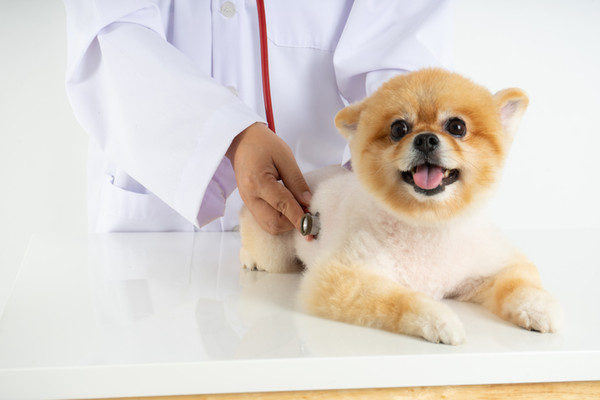With the number of pet owners growing and related industries enjoying a boom in Korea, local pharmaceutical companies are starting to advance into the veterinary drug market in earnest.

The size of the domestic companion animal-related market grew from 900 billion won ($764.9 million) in 2012 to 5.8 trillion in 2020, according to a report on the domestic pet market by the Ministry of Agriculture, Food and Rural Affairs and the Korea Institute for Industrial Economics and Trade.
"The market size of about 6 trillion won is equivalent to the outdoor clothing market, jewelry market, and medical device market in 2016," the report said.
The size of the local veterinary drug market, including quasi-drugs for veterinary use and veterinary medical devices, has also expanded in line with the pet market. According to data from the Korea Veterinary Medicine Association, the market has grown at an average annual rate of 7 percent for eight years, from 505.7 billion won in 2013 to 853.2 billion won in 2020.
The problem with the domestic pet industry or pet drug market is they rely heavily on imports, industry insiders said.
When the market was small, it didn’t matter much. However, the veterinary drug market has sharply grown amid the prolonged Covid-19 pandemic, resulting in supply cuts or shortages of some drugs.
Against this backdrop, domestic pharmaceuticals began to release veterinary drugs or establish subsidiaries focused on the health of companion animals.
For example, Dongkook Pharmaceutical has recently launched Canidol Tab, the first homegrown dog periodontal disease treatment, and entered the veterinary drug market.
Daewoong Pharmaceutical has established Daewoong Pet as a subsidiary and jumped into developing new drugs for companion animals.
The company announced the clinical results of DWP16001, a diabetes drug with an SGLT-2 inhibitory mechanism, conducted on companion animals during the Korean Society of Veterinary Science in May.
According to Daewoong, diabetes occurs in about one in 300 dogs and one in 200 cats. In the case of companion animals, insulin-dependent diabetes mellitus is most common, which refers to type 1 diabetes.
"However, there are no oral veterinary drugs for diabetes treatment so far, and most of them receive insulin injections as a treatment," the company said. "As there is no oral diabetes treatment other than insulin injections, the company expects that DWP16001 will become a new option if we develop medicines for companion animals."
Yuhan Corp. and GC Labcell have also entered the veterinary drug market.
Yuhan launched Gedacure, a treatment for dog cognitive dysfunction syndrome (CDS), in May last year. The drug is being sold in about 10 percent of all veterinary hospitals.
"CDS syndrome in dogs, a disease with symptoms similar to human Alzheimer's dementia, not only reduces the quality of life of dogs but also affects their companion life with their guardians by showing behaviors such as barking in the middle of the night," the company said.
Yuhan explained that when they administered crisdesalazine, the main component of Gedacure, to an animal model of Alzheimer's dementia, it significantly reduced amyloid plaques and brain nerve cell death, known as the cause of Alzheimer's dementia.
Due to the drug's high efficacy, about 10 percent of all veterinary hospitals started using it within three months of its launch, it added.
GC Labcell also established Green Vet, a company specializing in animal diagnostic testing, in March.
It provides preventive, treatment, and health care services that can manage the entire life cycle of companion animals, including diagnostic tests.
GC Labcell expects Green Vet to become a stable engine that will lead the company's growth as it enters the market rapidly.
"The goal is to occupy the top market share in the field of animal diagnostic testing next year," the company said.

